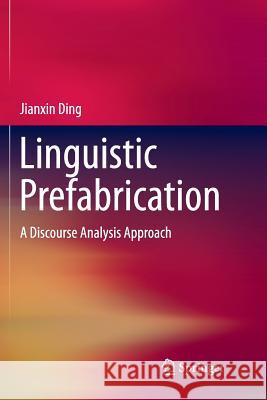Linguistic Prefabrication: A Discourse Analysis Approach » książka
topmenu
Linguistic Prefabrication: A Discourse Analysis Approach
ISBN-13: 9789811349850 / Angielski / Miękka / 2019 / 158 str.
Kategorie:
Kategorie BISAC:
Wydawca:
Springer
Język:
Angielski
ISBN-13:
9789811349850
Rok wydania:
2019
Wydanie:
Softcover Repri
Ilość stron:
158
Waga:
0.25 kg
Wymiary:
23.39 x 15.6 x 0.94
Oprawa:
Miękka
Wolumenów:
01











